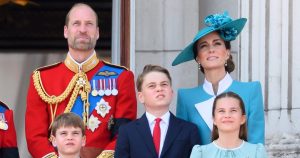The burgeoning town of Gilbert, Arizona, a former agricultural hub transformed into a technology and science center, finds itself in the midst of a legal battle over a recent tax increase. The rapidly expanding population, projected to exceed 330,000 by 2030, has led to increased demands on municipal services, prompting the town council to raise the general transaction tax (sales tax) and transient lodging tax (bed tax) effective January 1, 2025. This decision, however, sparked controversy and a lawsuit filed by a resident, a homebuilders association, and the Goldwater Institute, a conservative think tank. The core contention is that the tax hike violates a 2018 amendment to the Arizona Constitution prohibiting increases in transaction-based taxes on services.
Gilbert, situated near Phoenix, experienced remarkable growth in the late 20th and early 21st centuries, transitioning from an agricultural community to a thriving hub of technology and science businesses. Despite its proximity to urban centers and favorable climate, the town hasn’t become a retirement destination. Instead, it boasts a remarkably young demographic, with the majority of residents under 45 and a median age of 34.5. This youthful population contributes to the demand for services such as parks, recreation facilities, and public safety infrastructure. As a self-proclaimed low-tax area with no corporate franchise or estate taxes, Gilbert relies on sales tax revenue and bonds to fund infrastructure projects due to the absence of a local property tax.
The tax increases, approved in October 2024, boosted the sales tax from 1.5% to 2.0% and the bed tax from 2.8% to 5%. The revenue generated from these increases is designated for crucial improvements in the police and fire departments, as well as parks and recreation. Specific projects include a new police substation, crime lab, fire station renovations, a joint fire and police apparatus center, trail improvements, a new park, recreation centers, a splash pad, and a 16-court pickleball complex. The pickleball courts, in particular, have become a focal point of the lawsuit, with the Goldwater Institute labeling the tax increase as an “illegal pickleball tax.”
The lawsuit, Barth v. Town of Gilbert, was filed in December 2024 by Gilbert resident Jonathan Barth, a short-term rental owner, the Home Builders Association of Central Arizona, and the Goldwater Institute. The plaintiffs argue that the tax increase will negatively impact Barth’s short-term rental business, increase housing costs for HBACA members, and generally burden Gilbert residents and businesses. Their legal argument hinges on the 2018 constitutional amendment, which they interpret as prohibiting the town’s tax increase on services. The Goldwater Institute, founded with the endorsement of former Senator Barry Goldwater, advocates for limited government and free markets, often challenging government actions it sees as infringing on these principles.
The Town of Gilbert firmly rejects the plaintiffs’ claims, maintaining that the tax increases are fully compliant with state law and the Arizona Constitution. The town’s legal team insists their review of relevant statutes and precedents confirms the legality of the increases. They argue that the Goldwater Institute’s interpretation of the constitutional amendment misconstrues the prohibition on taxing services, particularly regarding the bed tax. While former Mayor Brigette Peterson voted against the tax ordinance, the incoming mayor, Scott Anderson, has not publicly commented on the lawsuit. This differing of opinion highlights the political dimension of the tax increase and underscores the complexity of balancing the needs of a growing community with fiscal responsibility and adherence to legal constraints.
The legal battle over Gilbert’s tax increase is poised to continue, with a resolution likely to take considerable time. The outcome of this case could have significant implications for other municipalities in Arizona facing similar budgetary challenges and considering tax increases to fund essential services. The Goldwater Institute’s involvement signals a broader debate about the role of government in providing services and the limits of taxation. Furthermore, the incoming Trump administration’s anticipated budget cuts at the federal level will likely exacerbate funding pressures on local governments, making decisions about revenue generation even more critical. The Gilbert case exemplifies the growing tension between the need for local funding and the desire to limit tax burdens, a dynamic likely to play out in communities across the nation. The "illegal pickleball tax" controversy, therefore, transcends the specific circumstances of Gilbert and highlights the complex and often contentious intersection of local governance, fiscal policy, and legal interpretation.










